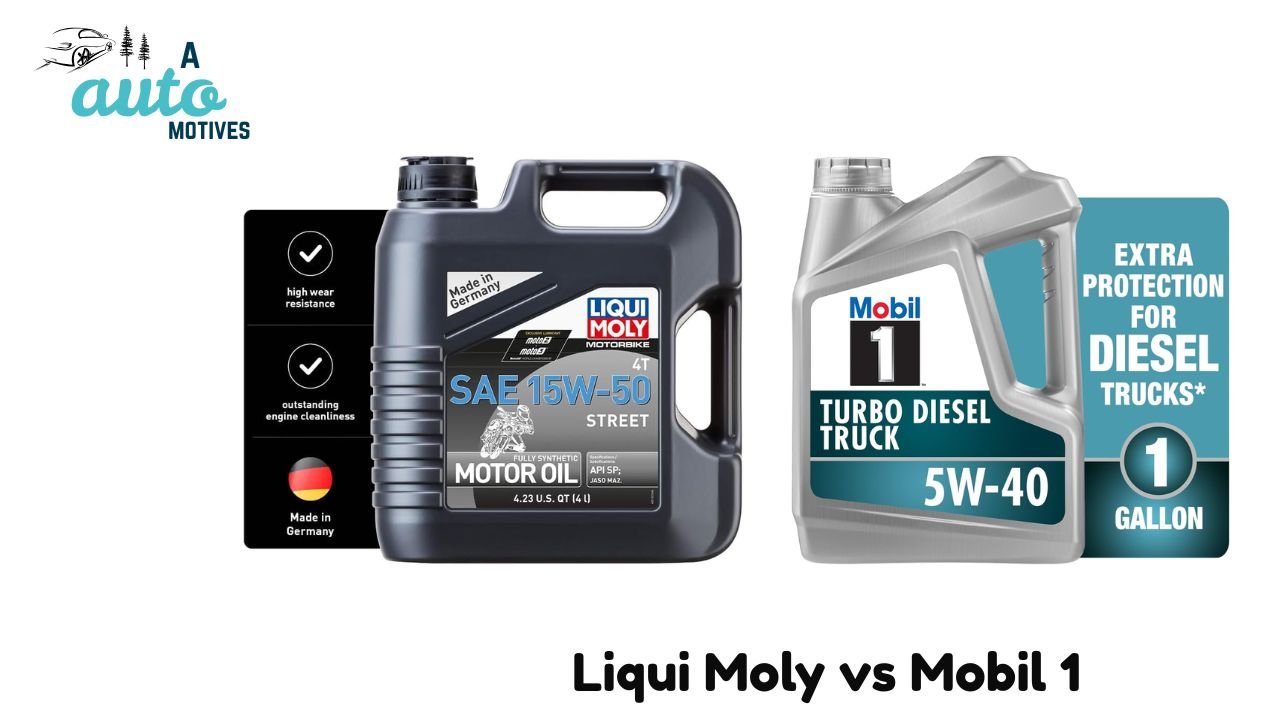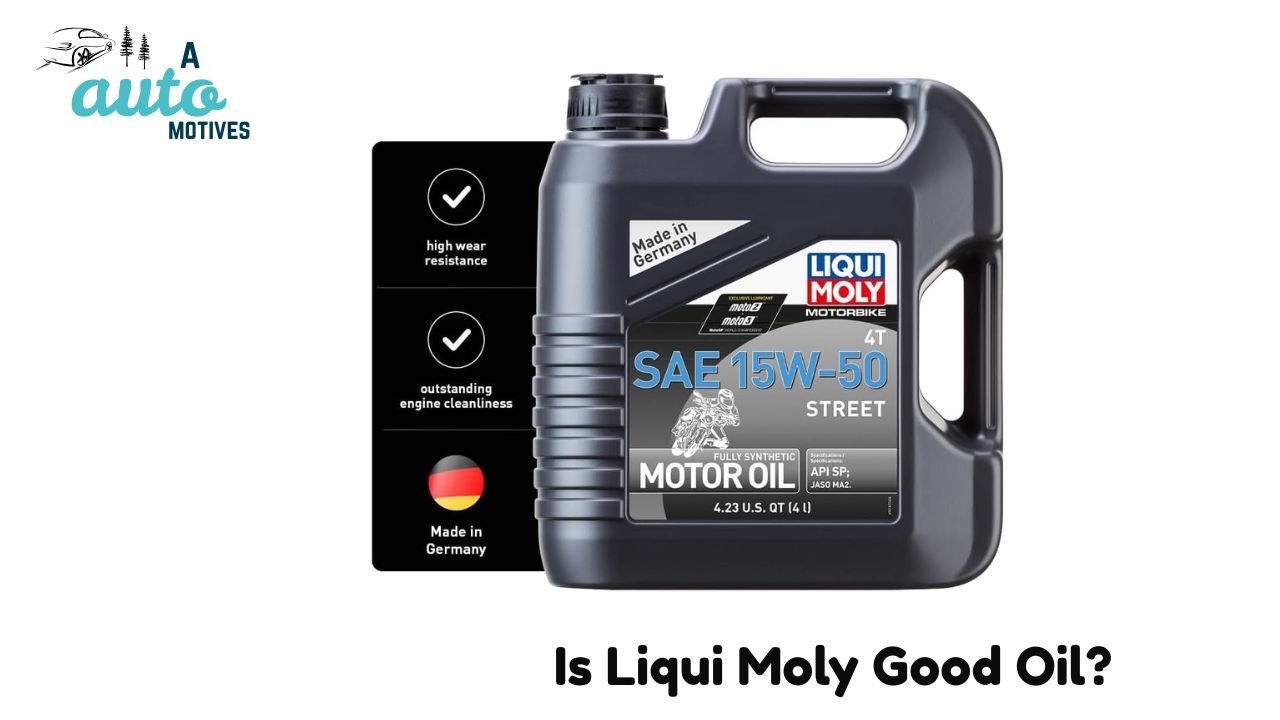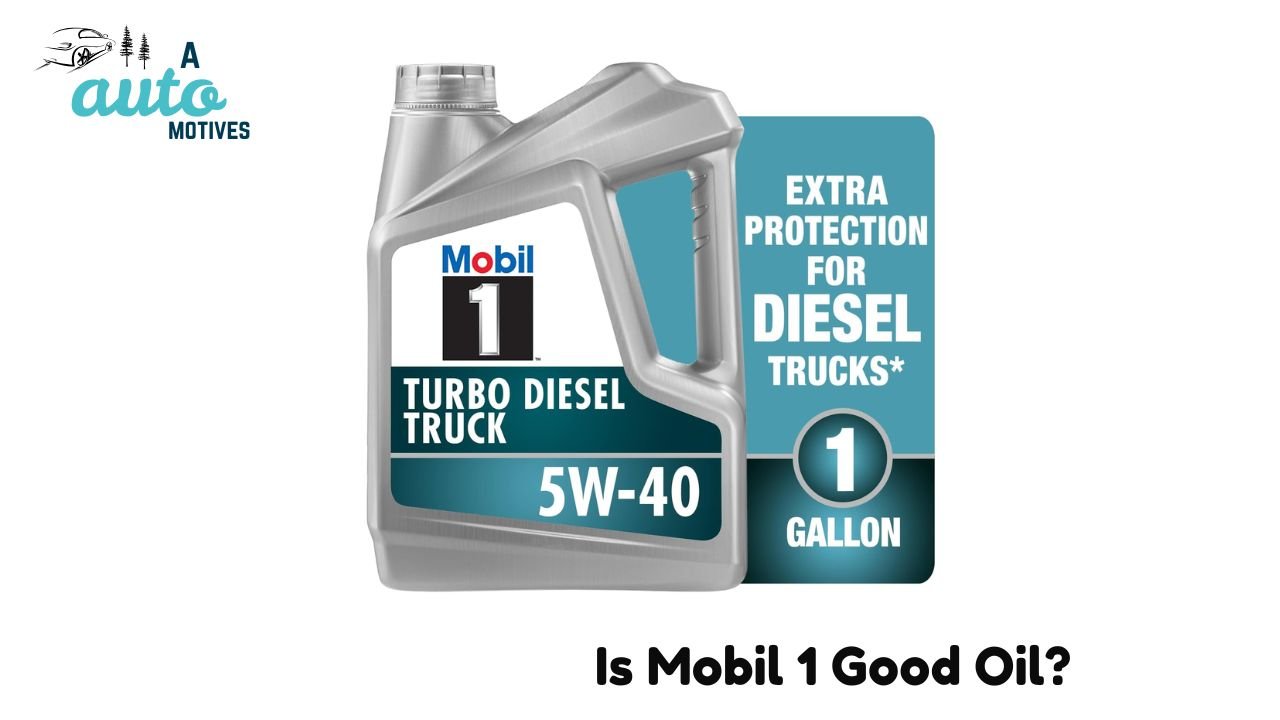Liqui Moly vs Mobil 1: My Honest Experience

Let’s be honest—engine oil isn’t something most of us think about every day. You change it, drive off, and forget about it until that little dashboard light flickers again. But if you’ve ever driven through the boiling highways of Arizona or the frozen parking lots of Minnesota, you know how much that golden liquid really matters.
Over the years, I’ve tested a lot of oils—Castrol, Pennzoil, Valvoline—but the two that stood out the most were Liqui Moly and Mobil 1. They’re both giants in the synthetic oil world. One’s German-engineered to perfection, the other’s an American icon trusted by automakers and race teams alike.
So I decided to do something different—test them both, back-to-back, in real driving conditions. No lab coats, no fancy machines. Just me, my cars, and a few thousand miles of mixed reality: highways, traffic jams, and harsh weather.
Here’s what I found out.
Is Liqui Moly Good Oil?

If you’re the kind of driver who believes a car’s engine deserves royal treatment, Liqui Moly might just be your dream oil. This German brand has a reputation for precision and quality. It’s not just about lubrication—it’s about engineering harmony.
I first poured Liqui Moly Molygen 5W-40 into my turbocharged sedan a few years ago. I was skeptical at first. Could an oil really make a noticeable difference? Spoiler: it did.
Within a few hundred miles, my car felt different. The idle was smoother, the engine noise dropped, and throttle response sharpened. Even the fuel economy nudged upward—not dramatically, but enough to notice after a few tanks.
It was as if my engine had taken a deep breath and sighed in relief.
What Makes Liqui Moly Special
Liqui Moly isn’t your run-of-the-mill synthetic oil. It’s made in Germany, where automotive standards are notoriously strict. The oil is designed with Molecular Friction Control (MFC)—a fancy name that basically means it minimizes metal-to-metal contact inside the engine. Less friction equals less wear, more efficiency, and longer life.
Think of it like putting your engine on a silk pillow instead of a metal bed.
It also performs beautifully under temperature extremes. I’ve driven through Wisconsin winters where the mercury dipped below -10°F and Texas summers where it soared past 110°F. Liqui Moly stayed steady through both. It remained fluid enough to ensure cold starts weren’t sluggish, and stable enough in heat to prevent thinning.
What I Love About Liqui Moly
-
Incredible engine protection – It feels like the oil hugs every metal surface, reducing wear and tear.
-
Handles wild weather – Cold or hot, it doesn’t let your engine suffer.
-
Keeps engines squeaky clean – Its detergents prevent sludge buildup impressively well.
-
Great for turbo and performance engines – Ideal for high-pressure systems.
-
Long-lasting – Some blends comfortably stretch to 10,000 miles between changes.
What Could Be Better
No product is perfect, and Liqui Moly isn’t either.
-
Pricey stuff – You’ll definitely pay more per quart than brands like Valvoline or Castrol.
-
Not easy to find – Unless you order online or visit specialty shops, it’s rare on U.S. shelves.
-
Not always recommended by U.S. automakers – Some manuals specifically name Mobil 1 or other brands.
Still, if your car is European, turbocharged, or you just love premium quality, Liqui Moly is worth every penny.
My Verdict on Liqui Moly
If your car is a BMW, Audi, VW, or any high-performance engine that demands care, Liqui Moly is gold. It’s like feeding your engine a clean, balanced diet—nothing synthetic about its soul, even though the oil is fully synthetic.
For everyday drivers, though, it might feel a bit like overkill. Mobil 1 gives similar protection for less money and easier availability. But if you’re the type who treats your car like a friend instead of a tool, go for Liqui Moly. It’ll return the love.
Check latest Liqui Moly price and offers on Amazon
Is Mobil 1 Good Oil?

Now, let’s talk about the legend. Mobil 1 has been around for decades, and for good reason. It’s been the factory fill for brands like Corvette, Porsche, and Mercedes-Benz for years. That alone says something.
I’ve used Mobil 1 Extended Performance 5W-30 for a long time in my daily driver—a mid-sized sedan that sees everything from long road trips to short grocery runs. What keeps me loyal is its consistency. No matter what I throw at it—long drives, cold starts, summer heat—it just works.
During one particular Chicago winter, when the world outside was more ice than asphalt, my car started on the first crank every morning. No hesitation, no sluggish oil circulation. That’s when I knew Mobil 1 wasn’t just marketing hype.
What Makes Mobil 1 Stand Out
Mobil 1 is all about balance. It’s designed to perform under every possible driving condition, from stop-and-go city traffic to high-speed highway stretches.
It’s a fully synthetic oil, formulated with advanced detergents and friction modifiers that protect your engine while enhancing performance. It also meets or exceeds API SN Plus and ILSAC GF-6 standards—so it’s compatible with modern engines, including turbocharged, hybrid, and high-performance types.
Mobil 1 is also trusted globally, and that’s not by accident. Its formula minimizes sludge buildup, reduces metal wear, and helps engines stay young longer.
What I Like About Mobil 1
-
Top-notch protection – Keeps engines running smooth, even under heavy stress.
-
Extreme temperature performance – From freezing cold to desert heat, it never lets you down.
-
Fuel-efficient – It reduces internal friction, which means better gas mileage.
-
Long oil change intervals – Some variants last up to 15,000 miles.
-
Easily available – You can find it at Walmart, AutoZone, or even your corner store.
What Could Be Better
-
Not cheap either – Though often more affordable than Liqui Moly, it’s still premium-priced.
-
Not ideal for old, leaky engines – Some high-mileage vehicles may burn it faster.
-
Overkill for short-distance driving – If you’re just commuting a few miles daily, it’s more than you need.
Should You Use Mobil 1?
If your car is modern, powerful, or frequently driven, Mobil 1 is a safe bet. It’s the kind of oil that offers peace of mind. You can drive long distances, skip a few thousand miles between changes, and still know your engine is protected.
I’ve noticed Mobil 1 also gives engines a silky feel—especially on acceleration. It’s smoother, lighter, and more responsive, like swapping running shoes for racing sneakers.
If your car is older and guzzles a bit of oil, you might want to try Mobil 1 High Mileage. It’s formulated to handle worn seals and prevent leaks.
Check latest Mobil 1 price and offers on Amazon
Liqui Moly vs Mobil 1: Which One Wins?
Now here’s where things get interesting. I’ve used both oils in different cars for years, and each shines in its own way.
If I had to describe them with personalities:
-
Liqui Moly is the perfectionist German engineer—precise, protective, and focused on long-term health.
-
Mobil 1 is the American all-rounder—strong, versatile, and ready for any road.
Let’s break down their differences based on real-world performance.
Viscosity & Cold Weather Starts
| Aspect | Liqui Moly | Mobil 1 |
|---|---|---|
| Cold Flow | Slightly thicker, slower in deep cold | Excellent cold flow, quick starts |
| High Heat Stability | Holds well but thins slightly | Extremely stable under high temps |
| Variety | Limited viscosity options | Wide range for all engines |
Winner: Mobil 1
Mobil 1 flows faster in freezing conditions, making it ideal for cold regions.
Oil Type & Compatibility
| Oil Type | Liqui Moly | Mobil 1 |
|---|---|---|
| Fully Synthetic | Premium protection | Excellent performance |
| Semi-Synthetic | Available but rare | Common and affordable |
| Conventional | Limited | Available for older engines |
Winner: Mobil 1
It offers more options across different vehicles and price ranges.
Additives & Cleaning Power
| Additive Type | Liqui Moly | Mobil 1 |
|---|---|---|
| Detergents | Strong, but requires regular changes | Exceptional sludge control |
| Anti-Wear Agents | Superb protection | Great, but degrades faster |
| Friction Modifiers | Subtle improvement | Noticeable efficiency boost |
Winner: Liqui Moly
Its additive chemistry provides deeper, long-term protection.
Engine Protection & Longevity
Here’s where both brands truly shine—but they do it differently.
| Protection Area | Liqui Moly | Mobil 1 |
|---|---|---|
| Wear Prevention | Excellent anti-wear additives; engine runs quieter | Great overall protection, though slightly less lasting |
| Sludge Resistance | Good, but needs timely changes | Exceptional at keeping engines spotless |
| Oil Stability Over Time | Can degrade slightly after long use | Stays strong for longer drain intervals |
Winner: Mobil 1
Mobil 1 is better suited for drivers who prefer extended oil change intervals and want their engine internals to stay cleaner for longer.
That said, Liqui Moly’s formula protects against wear better, especially if you drive hard or own a turbocharged engine.
Fuel Efficiency & Performance Feel
I paid attention not just to numbers on a spreadsheet—but to how the car actually felt.
After driving 3,000 miles with Liqui Moly and the same distance with Mobil 1 (under similar conditions), here’s what I noticed:
| Factor | Liqui Moly | Mobil 1 |
|---|---|---|
| Fuel Economy | Slight improvement (1–2%) | Noticeable gain (2–3%) |
| Engine Smoothness | Slightly more mechanical feel | Buttery smooth throttle response |
| Noise Level | Quieter at idle | Smoother at acceleration |
Winner: Mobil 1
Mobil 1 feels more refined in daily driving. It’s smoother when revving and slightly better for fuel efficiency.
Temperature Performance: Extreme Heat & Cold
I’ve tested both in real extremes—summer in Texas and winter in Wisconsin.
| Condition | Liqui Moly | Mobil 1 |
|---|---|---|
| Cold Start (Below Freezing) | Slight delay in circulation | Instant lubrication, no hesitation |
| High Heat (100°F+) | Stable but softens slightly | Keeps viscosity rock-solid |
| All-Weather Reliability | Great but prefers moderate climates | Works perfectly across all conditions |
Winner: Mobil 1
If you live in areas with extreme weather swings, Mobil 1 gives more confidence. Liqui Moly performs well, but its slightly thicker flow can be less ideal in brutal cold.
Oil Change Intervals & Maintenance
This one matters a lot if you hate crawling under your car often.
| Longevity Factor | Liqui Moly | Mobil 1 |
|---|---|---|
| Recommended Change Interval | 7,000–10,000 miles | Up to 15,000 miles (Extended Performance) |
| Extended-Drain Formulas | Limited | Available and tested |
| High-Mileage Compatibility | Great for newer engines | Perfect for aging engines (75K+ miles) |
Winner: Mobil 1
Mobil 1 wins easily for convenience and extended protection. If you want fewer oil changes per year, go with it.
My Real-World Testing Summary
Let’s break down the entire experience in one table to make things clearer:
| Category | Liqui Moly | Mobil 1 | Winner |
|---|---|---|---|
| Cold Weather Starts | 8/10 | 9.5/10 | Mobil 1 |
| High-Temp Stability | 8.5/10 | 9/10 | Mobil 1 |
| Engine Protection | 9.5/10 | 9/10 | Liqui Moly |
| Sludge Control | 8/10 | 9.5/10 | Mobil 1 |
| Fuel Efficiency | 8/10 | 9/10 | Mobil 1 |
| Longevity | 8/10 | 9.5/10 | Mobil 1 |
| Additive Quality | 9.5/10 | 8.5/10 | Liqui Moly |
| Price & Availability | 7.5/10 | 9.5/10 | Mobil 1 |
Total Score
-
Liqui Moly: 8.6 / 10
-
Mobil 1: 9.1 / 10
Final Verdict: Which Oil Should You Choose?
If you’ve read this far, you can probably tell this isn’t a black-and-white answer. Both oils are excellent—but for different reasons.
Go with Liqui Moly if:
-
You want the ultimate protection for your engine internals.
-
You drive a European car or a turbocharged performance engine.
-
You don’t mind paying a bit more for premium German engineering.
-
You prioritize smooth mechanical operation over long intervals.
Go with Mobil 1 if:
-
You live in regions with extreme heat or freezing cold.
-
You want longer oil change intervals (up to 15,000 miles).
-
You drive a modern gas, diesel, or hybrid vehicle.
-
You want a smooth, efficient, low-maintenance experience.
My personal pick:
I use Liqui Moly in my turbocharged sedan—it loves it. But in my daily driver SUV, Mobil 1 wins hands down. It’s reliable, easy to find, and keeps the engine feeling brand new even after thousands of miles.
In short, Liqui Moly is the precision scalpel, while Mobil 1 is the all-terrain hammer. Both get the job done—but one is tailored art, and the other is rugged performance.
FAQs: Liqui Moly vs Mobil 1
1. Which oil gives better protection—Liqui Moly or Mobil 1?
Liqui Moly provides slightly better anti-wear protection, especially for performance engines. Mobil 1, however, maintains its viscosity longer and offers better sludge resistance.
2. Does Liqui Moly improve performance?
Yes, especially in turbocharged and high-compression engines. Many users (myself included) report smoother acceleration and quieter operation after switching.
3. Is Mobil 1 worth the price?
Absolutely. It’s one of the few oils that genuinely backs up its marketing. You pay a little more, but the performance and longevity justify it.
4. Can I mix Liqui Moly and Mobil 1?
Technically, yes—but it’s not recommended. Mixing oils can dilute their additive packages and affect performance. Stick with one brand for consistency.
5. How often should I change these oils?
Liqui Moly: around 7,000–10,000 miles.
Mobil 1: up to 15,000 miles with the Extended Performance variant.
Always check your car’s manual before deciding.
6. Which oil is better for extreme weather?
Mobil 1 takes the crown here. It flows faster in freezing conditions and stays stable in desert heat. Liqui Moly handles mild extremes well but isn’t as adaptive.
The Bottom Line
Both Liqui Moly and Mobil 1 are world-class synthetic oils. The choice depends on your car, your climate, and your driving style.
If you’re passionate about your engine’s health and want that silky, precision feel—Liqui Moly will make your heart happy.
If you crave durability, convenience, and all-weather reliability—Mobil 1 is your best bet.
In my experience, you can’t go wrong with either. They’re the kind of oils that let you sleep better at night knowing your engine’s safe, no matter what road—or weather—comes next.
Check the latest prices and customer reviews for both on Amazon before you decide.






